#Practices #Print #Material #Design #Ensuring #Quality #Clarity
In an increasingly digital world, print materials still wield considerable power in marketing, communication, and branding. Brochures, business cards, posters, and other print materials serve as tangible representations of a brand’s identity and message. As such, the design of these materials is paramount; it cannot only attract attention but also ensure that the information conveyed is clear and impactful. This article will outline best practices for print material design, focusing on quality, clarity, and effectiveness.
Understanding the Purpose and Audience
Define Objectives
Before engaging in the design process, it’s essential to define the objectives of the print material. Ask yourself what you want it to achieve:
- Inform: Is the primary goal to educate your audience about a product or service?
- Promote: Are you looking to generate sales or attract attention to an event?
- Engage: Is the aim to inspire action or evoke a particular emotion?
Clearly established objectives set the foundation for all design decisions moving forward.
Know Your Audience
Having a deep understanding of your target audience is critical. Consider factors such as:
- Demographics: Age, gender, income levels, and education can influence design choices.
- Interests: Align your design aesthetics with what your audience finds appealing.
- Pain Points: Addressing these can help engage your audience more effectively.
Understanding who you are designing for will guide layout, colors, typography, and content choices.
Quality Design Elements
Typography
The use of typography goes beyond simply choosing a font. Effective typography enhances readability and establishes hierarchy.
- Font Choice: Select fonts that reflect the brand’s image. Serif fonts often convey tradition and reliability, while sans-serif may feel more modern and approachable.
- Readability: Ensure fonts are legible at various sizes, especially for critical information. Avoid overly decorative fonts unless they serve a specific purpose.
- Hierarchy: Differentiate between headings, subheadings, and body text to guide the reader’s eye through the content logically and easily.
Color Palette
Color sets the mood and tone of your print material, influencing perceptions and emotions.
- Brand Consistency: Utilize colors that align with your brand’s identity. Consistent use of brand colors across all materials fosters brand recognition.
- Contrast: Ensure sufficient contrast between text and background. Dark text on a light background is usually easiest to read.
- Meaning: Colors carry different meanings across cultures. Understand the psychological implications of the colors you choose, tailoring them to your audience.
Imagery and Graphics
The use of images and graphics can significantly enhance the overall design.
- Relevance: Images should be closely tied to the content to strengthen the message. Avoid using images just for decoration.
- Quality: Always use high-resolution images (300 DPI for print) to avoid pixelation. Low-quality images can undermine the perceived value of your material.
- Branding: Incorporate brand logos and design elements carefully. They should enhance, not overwhelm, the primary message.
Layout and Composition
Use of White Space
White space is often undervalued in print design but plays a crucial role in facilitating clarity.
- Breathing Room: By incorporating ample white space, you help guide readers through the content and prevent them from feeling overwhelmed.
- Focus: Strategic use of white space can draw attention to key elements, such as calls-to-action or important information.
Grid Systems
Utilizing a grid system can provide structure and balance to your design.
- Alignment: Grids help in aligning text and images, creating a cohesive and organized appearance.
- Consistency: A consistent layout across different print materials strengthens the brand’s identity.
Balance
In every print design, balance is essential to ensure neither side of a design feels heavier than the other.
- Symmetrical vs. Asymmetrical: Both symmetrical and Asymmetrical layouts have their merits. Symmetrical layouts offer stability, while asymmetrical can create more dynamism when done correctly.
- Visual Weight: Consider the visual weight of images, color, and type. Heavy elements can be balanced with lighter elements or whitespace.
Text Content and Messaging
Clarity and Conciseness
Great print design also leverages effective messaging that resonates with the audience.
- Be Direct: Use simple and straightforward language. Avoid jargon unless it aligns with the audience’s knowledge.
- Limit Text: Focus on concise information. Bullet points or short paragraphs can make the content easier to digest.
- Call-to-Action: Every piece of print material should typically include a clear call-to-action (CTA), guiding the reader on the next steps.
Proofreading and Editing
The content must be flawless; typos can damage credibility.
- Multiple Reads: Always proofread multiple times and consider enlisting a fresh pair of eyes to spot errors you may have overlooked.
- Consistency: Ensure consistency in formatting—font sizes, styles, and colors should be uniform throughout the material.
Material Selection and Printing Techniques
Choosing the Right Print Material
The choice of paper stock can affect both the aesthetics and the tactile experience of the print material.
- Glossy vs. Matte: Glossy paper can make colors pop but may lead to glare; matte paper offers a subtle finish that can feel more sophisticated, yet it can dull colors.
- Weight: Heavier paper often feels more luxurious, while lighter paper may be more economical.
- Specialty Papers: Consider using recycled paper or textured finishes for a unique touch.
Printing Techniques
Different printing techniques can yield varying results.
- Digital vs. Offset Printing: Digital printing is economical for short runs, while offset printing offers quality for larger quantities.
- Finishing Techniques: Options such as embossing, foiling, and lamination can elevate the final product and enhance the tactile feel.
Proofing
Always request a proof from the print house before the final run.
- Check Colors: Ensure the colors on the printed proof match what you see on your screen.
- Verify Layout: Make sure that all elements are correctly aligned, and there are no unexpected shifts.
Post-Design Considerations
Distribution Strategy
Think about how the print material will be distributed and ensure it aligns with the design.
- Target Channels: Consider the different channels for distribution—events, mailers, handouts—and tailor your design accordingly.
- Size & Format: Size can affect how and where print materials are distributed. For example, business cards need to be portable, while posters can be larger and displayed prominently.
Measuring Success
Post-distribution, it is essential to gauge the success of your print materials.
- Feedback: Collect feedback from your audience to understand what resonated and what did not. Surveys can be a useful tool.
- Track Engagement: If your print materials include URLs or QR codes, track these to see how they perform in driving online engagement.
Conclusion
The design of print materials is a multifaceted process that requires careful consideration of various elements and best practices. From understanding the audience and selecting high-quality design elements to ensuring clarity in messaging and choosing the right printing techniques, each step contributes to the effectiveness of the final product. Following these best practices paves the way for creating print materials that stand out while effectively communicating their intended message.
FAQs
Q1: What is the ideal resolution for images used in print design?
A: For print design, images should be at least 300 DPI (dots per inch) to ensure a high-quality result.
Q2: What should I consider when choosing the paper stock for my print materials?
A: Consider the texture, weight, and finish of the paper stock. A heavier stock often conveys a sense of quality, while the finish can impact the look and feel of the design.
Q3: How can I ensure the colors in my print material will match what I see on my screen?
A: Colors can vary between screens and printed materials. It’s essential to request a proof from your printer, which will show how the final product will look before mass production.
Q4: How important is it to have a clear call-to-action (CTA) in my print material?
A: A clear CTA is crucial as it guides the reader on what steps to take next, whether it be visiting a website, making a purchase, or contacting your business.
Q5: How can I maintain brand consistency across multiple print materials?
A: Develop a style guide that includes your brand colors, fonts, and logo specifications. Use this guide as a reference for all print materials to ensure uniformity.
Q6: What are the differences between digital and offset printing?
A: Digital printing is best for short runs and offers lower costs per piece, while offset printing is more suitable for larger quantities and generally delivers higher quality.
Q7: When should I consider using specialty print methods like embossing or foiling?
A: Specialty print methods should be used when you want to create a unique tactile experience or add a touch of luxury to your materials, making them stand out even more.
By following these best practices, you can create effective and high-quality print materials that not only look good but also communicate your brand’s message clearly.
Of course! However, I need you to provide the specific title or topic you’d like me to write about. Please share the article title or subject so I can create the content for you.








